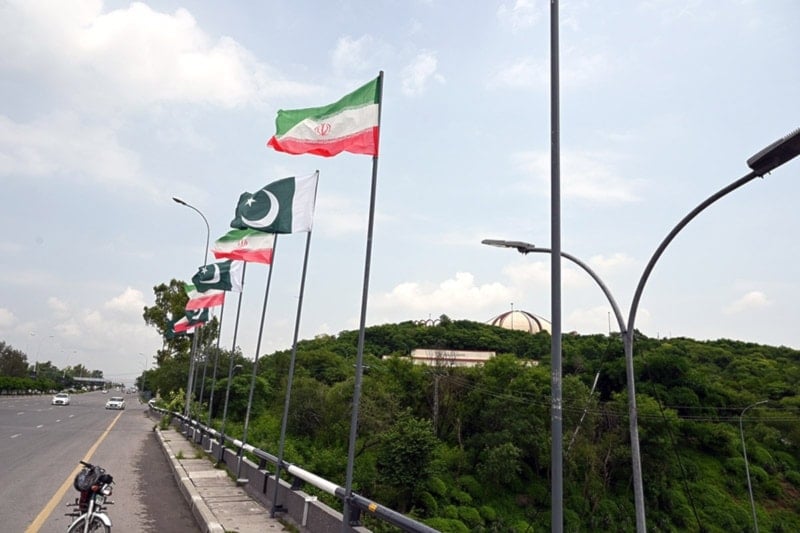Iran, Pakistan to hold 22nd joint commission on trade, investment
Iran and Pakistan will hold their 22nd Joint Economic Cooperation Commission in Tehran to expand collaboration in trade, investment, energy, and infrastructure despite ongoing sanctions and banking hurdles.
-

APP05-020825 ISLAMABAD: August 02 - Roads adorned with flags, extending a warm welcome to Iran’s President of Iran Dr. Masoud Pezeshkian and fostering Pakistan-Iran friendship (APP/SMR/FHA)
The 22nd session of the Iran–Pakistan Joint Economic Cooperation Commission is scheduled for September 15-16 in Tehran, with Pakistani Commerce Minister Jam Kamal Khan leading the delegation.
Khan arrived in the Iranian capital on Sunday for a three-day visit aimed at strengthening economic and trade ties. He will chair the Joint Economic Commission and co-chair the Pakistan-Iran Joint Business Forum, according to Pakistan’s Commerce Ministry.
"During the visit, [Khan] will lead the 22nd Session of the Pakistan-Iran Joint Economic Commission and co-chair the Pakistan-Iran Joint Business Forum. He is also scheduled to hold meetings with key Iranian ministers and senior officials to strengthen bilateral trade and investment cooperation," the ministry said in a statement.
Trade momentum revived
The meetings are expected to inject "fresh momentum" into a relationship that has long involved cooperation in energy and trade but has often struggled to reach its full potential. Both countries have set an ambitious target of raising annual trade from the current $3 billion to $10 billion, and recent agreements have focused on food security and agriculture. Iran has pledged to increase exports of dairy, nuts, and fresh produce to Pakistan, while Pakistan has committed to supplying rice, corn, and as much as 60% of Iran’s meat imports under the new arrangements.
Bilateral trade has already seen a 13.6% rise in the past year, reaching $3.129 billion, but officials acknowledge that banking restrictions, sanctions, and limited border infrastructure remain obstacles. The long-discussed Iran-Pakistan gas pipeline, for example, continues to be stalled by international sanctions.
Read more: Iran, Pakistan aim for $10Bn trade goal, discuss strategic partnership
In addition to economic and trade initiatives, the Joint Economic Commission will address cooperation in areas such as transportation, infrastructure, research, climate change, and cultural exchanges, with plans for joint agricultural committees to meet every six months.
Local media say that the commission is viewed by both governments as a key forum for overcoming structural barriers and regional constraints, while providing a platform to deepen cooperation at both national and provincial levels.

 2 Min Read
2 Min Read








